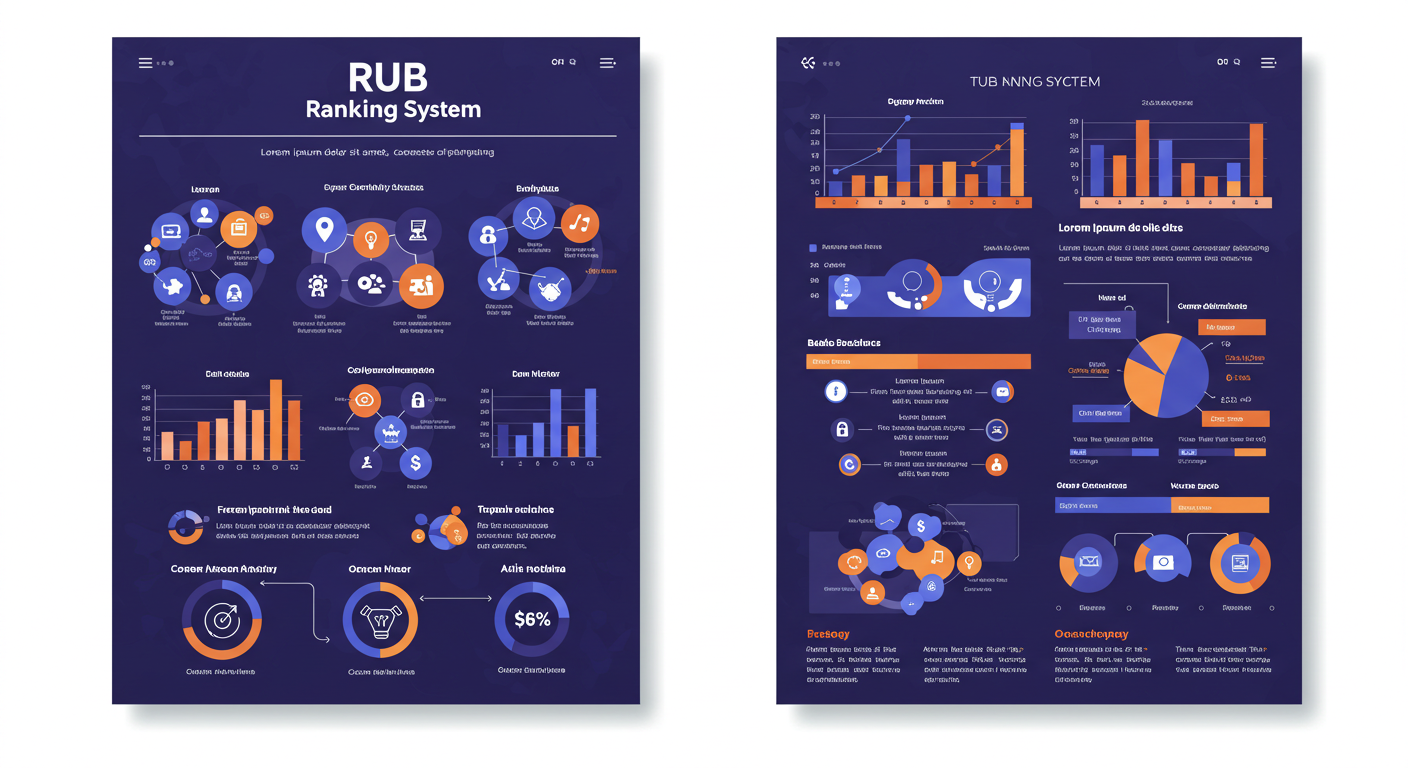Introduction: What Is RUB Ranking?
When you hear RUB ranking, you might first think of Ruhr-Universität Bochum (RUB) in Germany, but it can also refer to niche Reputation, Usability, and Benchmarking (RUB) assessments in academic or corporate contexts. This article explores both: the academic RUB ranking as it applies to Ruhr-Universität Bochum, and the broader concept of RUB-style rankings evaluating reputation, usability, and benchmarking across organizations, universities, and even products.
Understanding rankings is crucial in a world where reputation drives choices — whether it’s selecting a university, choosing a product, or evaluating a service. RUB ranking systems aim to measure performance, credibility, and influence with objective and subjective indicators.
read more General Sales Agents
RUB Ranking in Academia: Ruhr-Universität Bochum
Founded in 1962, Ruhr-Universität Bochum (RUB) is one of Germany’s largest universities. Located in the Ruhr area, it offers over 190 programs to more than 40,000 students. Its ranking performance, domestically and internationally, is essential for prospective students, faculty recruitment, research funding, and institutional prestige.
How Is RUB Ranked?
Multiple organizations and methodologies evaluate universities worldwide. The most common include:
- QS World University Rankings
- Times Higher Education (THE) Rankings
- Academic Ranking of World Universities (ARWU/Shanghai Ranking)
- CWTS Leiden Ranking
- CHE University Ranking (Germany-specific)
RUB’s scores in these rankings depend on metrics like:
Academic reputation
Citations per faculty/research impact
International faculty and student ratios
Employer reputation
Teaching quality and student satisfaction
Funding and industry collaboration
Recent RUB Rankings Snapshot
Here’s a look at Ruhr-Universität Bochum’s latest standings (note: actual ranks may change year by year):
- QS World University Rankings 2025: ~#550 globally
- Times Higher Education 2025: ~#400-500 band worldwide
- ARWU (Shanghai): often listed in the 401–500 bracket
- CHE Ranking: RUB’s programs like Law, Psychology, and Engineering are consistently rated among the best in Germany.
These rankings reflect RUB’s growing strength in research output, interdisciplinary programs, and student diversity.
Why Do RUB Rankings Matter?
Rankings have real consequences:
For Students: High rankings improve employability prospects and confidence in the degree’s value.
For Universities: Rankings affect global partnerships, research collaborations, and government funding.
For Employers: Rankings guide employers in assessing graduates’ academic backgrounds.
For Policymakers: Rankings influence national and regional education strategies.
RUB Ranking Methodology Breakdown
Most major ranking bodies consider the following:
Reputation Surveys: Peer and employer assessments.
Research Output: Citations, publications, international collaborations.
Faculty Metrics: Student-to-staff ratios, faculty qualifications.
Internationalization: Diversity of students/faculty and cross-border projects.
Financial Resources: Research grants, endowments, industry contracts.
Teaching Environment: Course structure, resources, student support.
RUB Ranking Beyond Academia: Reputation, Usability, Benchmarking
The term RUB ranking is also used in consulting, UX research, and corporate assessments:
- Reputation: How well-regarded is a company, service, or product?
- Usability: How easy is it for customers to use or engage with it?
- Benchmarking: How does it perform relative to competitors?
In this context, RUB rankings evaluate:
Website/app user experience (e.g., mobile usability)
Customer service responsiveness
Brand sentiment on social media
Product quality versus price
Compliance with industry standards
Examples of Non-Academic RUB Rankings
Tech Products:
A software company might publish a RUB ranking of project management tools, rating Asana, Trello, and Monday.com on reputation, usability, and benchmarked performance.
Healthcare Services:
Hospitals or clinics can be ranked using RUB metrics: patient reviews (reputation), appointment systems (usability), and treatment outcomes (benchmarking).
Consumer Goods:
A consumer watchdog could issue RUB scores for home appliances based on brand trust, ease of use, and lab performance tests.
RUB Ranking’s Global Impact
Whether in education or business, RUB rankings influence choices and strategies worldwide:
- Universities use rankings to attract international students.
- Companies rely on RUB-like assessments to stand out in crowded markets.
- Investors consult rankings when deciding which organizations or startups to fund.
In academia, RUB’s performance affects regional development, research output, and industry collaboration in North Rhine-Westphalia, Germany’s industrial heartland.
Criticism of RUB Rankings
While rankings can guide decisions, they face criticism:
Oversimplification: Complex institutions reduced to a single number.
Bias: Heavy reliance on reputation surveys can favor old, established institutions.
Short-termism: Universities may chase metrics over meaningful improvements.
Equity Concerns: Rankings often overlook inclusion and accessibility efforts.
Experts encourage viewing rankings as one of many decision factors.
How RUB Itself Uses Rankings
Ruhr-Universität Bochum monitors rankings for:
✔ Strategic planning
✔ Marketing and student recruitment
✔ Research priorities
✔ Funding applications
RUB’s international office highlights strong ranking results in promotional materials, showing its competitiveness in fields like materials science, psychology, and IT security.
Tips for Students Considering RUB Rankings
Look beyond the overall score: Explore subject-specific rankings.
Visit official university websites: Understand resources, faculty, and campus life.
Talk to alumni and current students: Get real insights.
Consider location and lifestyle: Ruhr area offers affordable living, cultural diversity, and proximity to major German cities.
FAQ on RUB Ranking
What does RUB stand for in RUB ranking?
Primarily Ruhr-Universität Bochum, but it can also stand for Reputation, Usability, Benchmarking in business contexts.
Is RUB ranking only for German universities?
No. While RUB refers specifically to Ruhr-Universität Bochum, RUB-style rankings are used in business, tech, and services to evaluate performance on reputation, usability, and benchmarking.
How reliable are RUB rankings?
They’re a helpful starting point but should not be the only factor in major decisions. Methodologies vary, and subjective elements can skew results.
Can a university improve its RUB ranking?
Yes. By enhancing research output, international collaborations, teaching quality, and employer reputation, universities can climb the rankings.
How does RUB compare to other German universities?
RUB often ranks in the top 20-30 nationally, with strengths in natural sciences, engineering, and social sciences.
Where can I find the latest RUB rankings?
Visit major ranking organizations’ websites like QS, THE, or ARWU, or check RUB’s own site for updates.
Do employers care about RUB ranking?
Yes. A university’s ranking can influence employer perceptions of degree quality, especially for international positions.
Conclusion: The Value of RUB Ranking
Whether you’re a student eyeing Ruhr-Universität Bochum or a company benchmarking products, RUB rankings provide valuable snapshots of performance, reputation, and usability. While imperfect, they remain a key reference for strategic decisions in education, business, and beyond.
Always combine rankings with personal goals, first-hand research, and advice from professionals to make the best choices for your future.
Ray-Ban Meta Smart Glasses Review: The Perfect Blend of Style and Technology










